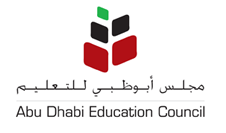 Business & Finance Club Magazine - Education Sector - ABU DHABI: Abu Dhabi plans to spend about 4.9 billion U.A.E. dirhams ($1.3 billion) a year from 2018, mostly on research and development, in an overhaul of its higher education system that will fill a key gap in its economic development plan, officials said late last week.
The ten-year plan to bring Abu Dhabi's universities up to international standards--announced Thursday--recognizes that the emirate "seriously lags behind in human capital," said Rafic Makki, executive director of the office of planning and strategic affairs at the Abu Dhabi Educational Council.
To build up research capabilities that will help sustain its shift away from an oil-based economy, Abu Dhabi will gradually boost public expenditure on research and development to 0.75% of gross domestic product, or about AED3.75 billion, in 2018, from a current share of less than 0.01%, according to the plan.
"The funds will be available to all universities in the U.A.E., and it will be competitive--anyone who can contribute to the research base can apply," Makki said.
Although Abu Dhabi has begun to build industries as diverse as semiconductors and airplane parts manufacturing, its universities rank low by international standards, says the strategy, which is the result of a sixth-month policy review by the Abu Dhabi Education Council. The quality of both graduates and faculty in the emirate is poor, meaning it lacks the capable workforce to drive its industries.
About 34,000 students were enrolled in higher education programs in Abu Dhabi in 2009-2010, 70% of which were in federal government schools. By 2018, the plan aims to have two Abu Dhabi universities rank among the top 100 globally, boost the rate of employment for women graduates to 65%, and have universities produce at least 50 utility patents--a measure of research performance.
The plan focuses on "building critical mass, sustained investment, and building facilities," though it doesn't outline a public funding model for universities, Makki said.
"We're in the process of doing the funding plan," which would address both endowments and a formula for university funding, Makki said.
RESEARCH FUNDING
"Certainly we'd like more funds for competitive research," Wyatt Hume, provost of the U.A.E. University in Al Ain, said. The university is one of three public, federal universities in the U.A.E.
"The principle shortfall at the moment is the lack of a central funding base, either federally or within Abu Dhabi and a robust and competitive, peer-reviewed grant process," Hume said.
Under the new plan, a central body will be set up to "study gaps on the human capital front" and advise the government on labor market needs, the education council's Makki said. A separate governmental committee for science and technology research will set research agendas for specific industries and fields.
Abu Dhabi, the largest of the United Arab Emirates and home to almost all of its crude oil, derives 64% of its GDP from the oil and gas sector, while about 4% of the workforce is employed by the sector, Makki said.
"The biggest challenge is aligning university graduates with Abu Dhabi's 2030 plan," Maki said. "We can incentivise, by providing scholarships."
Another challenge is coaxing Emirati youth away from traditionally-revered fields into tougher coursework, U.A.E. University's Hume said.
While graduates are encouraged to take up lines of study that complement the 2030 plan "by very generous scholarships from the government," it's more difficult to attract them to study medicine, Hume said.
"Medicine is the one that worries me the most. It's a long, hard course, and there are shorter courses that can get them more high-profile jobs," he added.
Still, the plan tries to cater to the very wide range of Abu Dhabi's economic ambitions.
Sorbonne University, which runs a satellite campus in Abu Dhabi, will team up the Louvre--also being built in Abu Dhabi as part of an arts and culture hub--to give scholarships to graduate curators. "We're also looking to promote the humanities and arts," Maki said. |